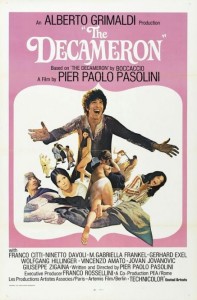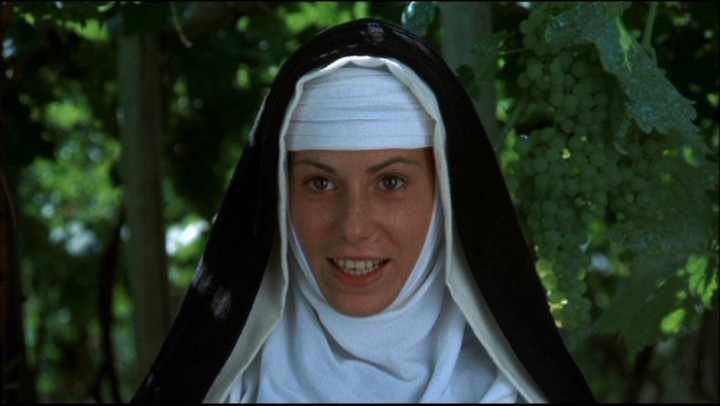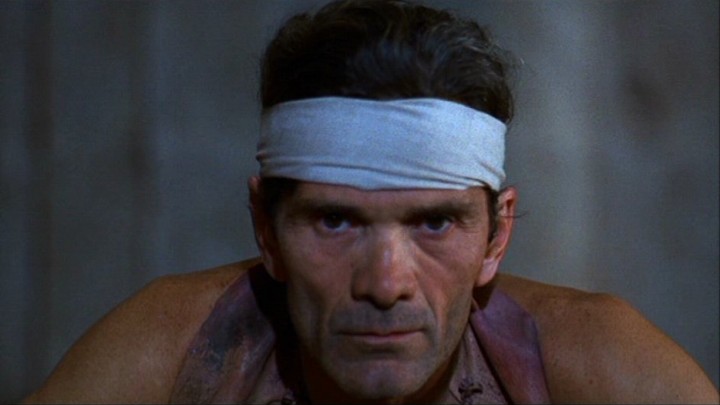“l met a lady claiming to be my sister. She invited me to supper. I fell into her toilet, and here I am!”
|

Synopsis:
Eight vignettes — based on stories from Boccaccio’s Decameron — poke fun at love, sex, and Catholicism in 14th century Italy.
|
|
Genres, Themes, Actors, and Directors:
- Episodic Films
- Historical Drama
- Italian Films
- Pier Paolo Pasolini Films
Response to Peary’s Review:
Pier Pasolini’s loose adaptation of Boccaccio’s naughty medieval folk tale collection is humorous, irreverent, and eminently watchable. As with any episodic film, some vignettes are inevitably more successful than others; among my favorites are the convent of lusty nuns who try to use a studly deaf worker for their own lascivious purposes; an unwitting young man who finds himself trapped in a coffin while trying to steal some jewels; and a father who catches his daughter having sex with her wealthy lover, then happily insists that they marry. As Peary points out, director Pasolini seems to revel in his characters’ debauchery, and this joy is evident in nearly every scene.
Redeeming Qualities:
- An energetic, colorful evocation of “subversive” behavior in medieval times

- A no-holds-barred portrayal of men and women who are, as Peary puts it, “in need of a shave, a bath, a dentist, or a good diet plan”

Must See?
Yes. This remains one of Pier Pasolini’s most enjoyable films, and is well-worth seeing.
Categories
- Foreign Gem
- Important Director
Links:
|
One thought on “Decameron, The (1971)”
Not must-see – but I will have to qualify that, since it could be up to a personal taste.
I’m admittedly not a fan of Pasolini’s work (overall). I have almost no feeling for his personal aesthetic and usually find his films haphazard and clumsy. His general preference for working with non-actors doesn’t help. Some directors can pull that off; Pasolini doesn’t seem to be one of them. ‘The Decameron’ is not an exception.
I’d seen it once before, and felt like falling asleep then, too. Pasolini has a specific – somewhat ponderous – tone and his way of storytelling has more to do with mood than narrative. The viewer will either appreciate that or not. (I don’t, particularly.)
The only vignette here that is sort of satisfying (for me) is the one in which three brothers take revenge on a young man for having sex with their sister. But even that sequence, though much of it establishes a nice rhythm, falls short: the sister is played by an emotionless young woman (she doesn’t even react when she finds her lover’s dead body) and the storyline just…ends…inconclusively.
‘The Decameron’ – which, being slight, doesn’t particularly benefit from a second viewing – is said to be among Pasolni’s more accessible work (and that’s actually true) but I would think it could try the patience of some more-general film fanatics. Of course, if those viewers are Italian, it could be a different matter and the film could strike a chord for those of the region. But I find it a rather awkward and tedious work.